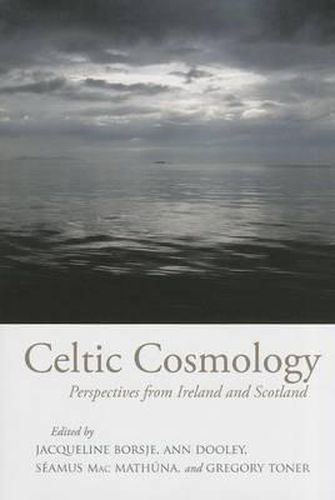Readings Newsletter
Become a Readings Member to make your shopping experience even easier.
Sign in or sign up for free!
You’re not far away from qualifying for FREE standard shipping within Australia
You’ve qualified for FREE standard shipping within Australia
The cart is loading…






From the deep sea to the waters above the sky, from the world beneath our feet to the promised land across the ocean - this volume represents a search for traces of cosmologies in Celtic sources, especially those of Ireland and Scotland. These cosmological traces are investigated for their Indo-European and Semitic parallels and influences. The broad world orderings - Celtic tripartition (earth, water and sky) and Christian bipartition (this world and the next) - are explored, and the cosmological meaning of specific demarcations in the landscape is analyzed. The world was mapped with words, as signposts for contemporary and future generations. These written maps are not only geographical, they also constitute ethical and mythological guidelines. Through storytelling, landscape and social space are processed in a framework of cosmic good and evil. In a Celtic mental world roads, rivers, mountains and hills are vital markers. Hills and caves were used in rituals and were seen as entrances to a subterranean otherworld where supernatural beings dwell and knowledge of the cosmos was believed to reside with these supernatural or subterranean beings. This knowledge is connected with protection and violation of the landscape and waters, and is often associated with the king, truth and justice. In the socialized landscape features of periphery and centre are closely related to kingship: thus, looming tragedy can be deduced from the route that a mythical king takes; royal capitals are outlined in landscape and architecture as ritual centres. The naming of significant places is a human act of creating order. In the Celtic literary tradition of explanatory and etymologizing stories, place-names serve as signifiers and warning signs (taboos) and some Celtic narratives on naming places appear to function also as performances of atonement for disruptions of the cosmic order.
$9.00 standard shipping within Australia
FREE standard shipping within Australia for orders over $100.00
Express & International shipping calculated at checkout
From the deep sea to the waters above the sky, from the world beneath our feet to the promised land across the ocean - this volume represents a search for traces of cosmologies in Celtic sources, especially those of Ireland and Scotland. These cosmological traces are investigated for their Indo-European and Semitic parallels and influences. The broad world orderings - Celtic tripartition (earth, water and sky) and Christian bipartition (this world and the next) - are explored, and the cosmological meaning of specific demarcations in the landscape is analyzed. The world was mapped with words, as signposts for contemporary and future generations. These written maps are not only geographical, they also constitute ethical and mythological guidelines. Through storytelling, landscape and social space are processed in a framework of cosmic good and evil. In a Celtic mental world roads, rivers, mountains and hills are vital markers. Hills and caves were used in rituals and were seen as entrances to a subterranean otherworld where supernatural beings dwell and knowledge of the cosmos was believed to reside with these supernatural or subterranean beings. This knowledge is connected with protection and violation of the landscape and waters, and is often associated with the king, truth and justice. In the socialized landscape features of periphery and centre are closely related to kingship: thus, looming tragedy can be deduced from the route that a mythical king takes; royal capitals are outlined in landscape and architecture as ritual centres. The naming of significant places is a human act of creating order. In the Celtic literary tradition of explanatory and etymologizing stories, place-names serve as signifiers and warning signs (taboos) and some Celtic narratives on naming places appear to function also as performances of atonement for disruptions of the cosmic order.